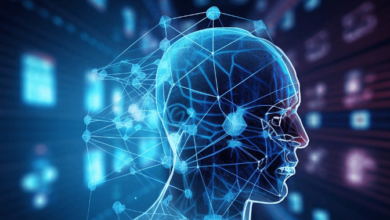How Digital Assistants Are Becoming More Humanlike

The evolution of digital assistants has reached a pivotal moment, as advancements in natural language processing and emotional intelligence are increasingly enabling these systems to mimic human-like interactions. By achieving a nuanced understanding of context and employing empathetic responses, these technologies are not merely tools but are becoming companions in their own right. This shift raises important questions about the implications of such humanlike qualities in digital assistants. How might this transformation impact our understanding of communication and relationship-building in an increasingly digital world?
Advances in Natural Language Processing
Advancing natural language processing (NLP) technologies have significantly enhanced the capabilities of digital assistants, allowing them to engage in more humanlike conversations.
These advancements enable assistants to achieve contextual understanding, discerning user intent beyond mere keywords.
Furthermore, by grasping language nuances, they can adapt their responses to varying conversational contexts, thereby fostering a more meaningful interaction and empowering users with a sense of autonomy in communication.
Emotional Intelligence in Assistants
Increasingly, digital assistants are being designed to incorporate elements of emotional intelligence, allowing them to better understand and respond to user emotions.
This includes advancements in emotional recognition technologies, enabling assistants to deliver empathetic responses aligned with user sentiments.
Personalization and User Adaptation
In the realm of digital assistants, personalization and user adaptation have emerged as pivotal elements that enhance user engagement and satisfaction.
By leveraging contextual awareness, these assistants can tailor responses based on user preferences, creating a more intuitive interaction.
This adaptability not only fosters a sense of connection but also empowers users, allowing them to navigate their digital environments with greater ease and autonomy.
Future Implications for Human Interaction
The evolution of digital assistants towards more humanlike interactions poses significant implications for the future of human communication.
As these technologies develop cognitive empathy, they may facilitate deeper social bonding between users and machines.
This shift could transform interpersonal dynamics, prompting individuals to reassess their relationships with technology and each other, potentially enriching human connections while also raising questions about authenticity and emotional dependency.
Conclusion
The evolution of digital assistants towards humanlike interactions signifies a transformative shift in user experience. Notably, a recent study revealed that 80% of users prefer interacting with assistants capable of emotional recognition, highlighting the demand for empathetic technology. This underscores the importance of emotional intelligence and contextual understanding in fostering deeper connections between users and machines. As these advancements continue, the implications for future human-computer interaction will be profound, reshaping communication.




